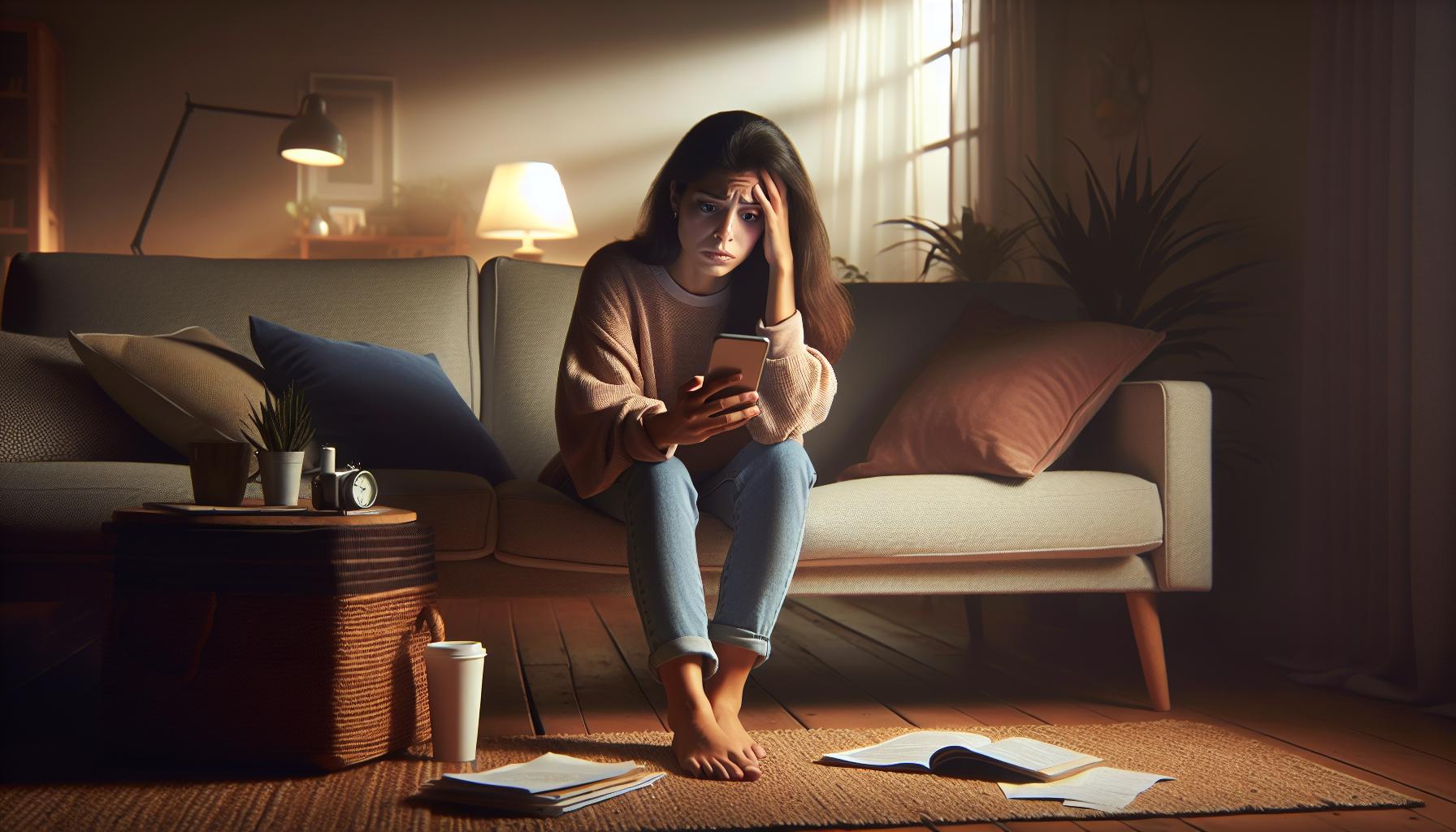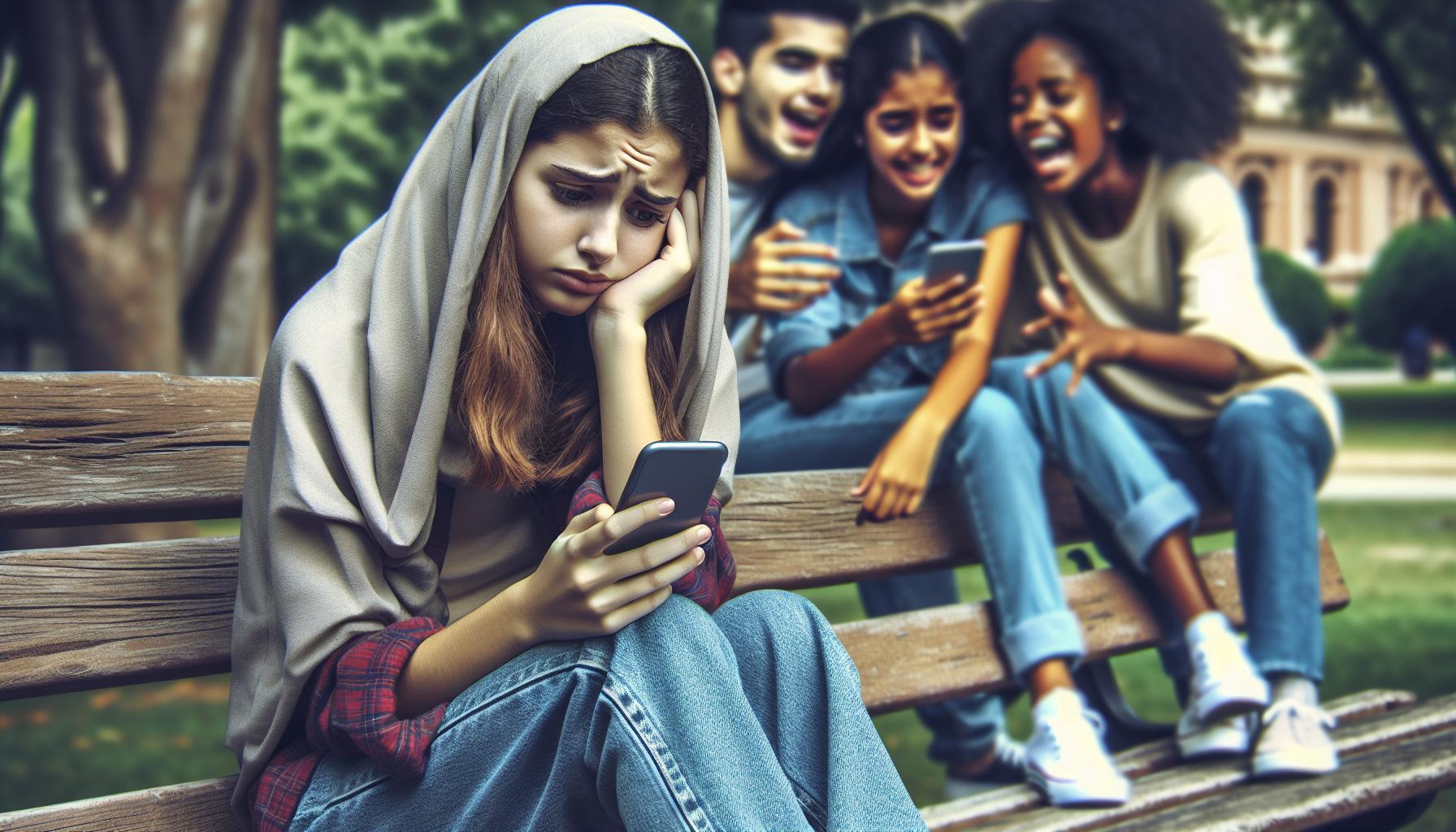Social media has transformed how people connect and communicate, but it comes with a hidden cost. As users scroll through curated feeds filled with perfect moments, they often find themselves grappling with feelings of inadequacy and anxiety. The pressure to present an idealized version of life can lead to a significant decline in mental well-being.
Research shows a strong link between heavy social media use and various mental health issues, including depression and loneliness. While platforms can foster community and support, they can also create an environment ripe for comparison and cyberbullying. Understanding these negative effects is crucial for navigating the digital landscape while preserving mental health.
Key Takeaways
- Social Media’s Dual Nature: While social media fosters connectivity, it also contributes to mental health challenges such as anxiety, depression, and loneliness.
- Impact of Social Comparison: Users often experience diminished self-esteem due to constant comparisons with others’ curated, idealized lives on platforms like Instagram and Facebook.
- Cyberbullying Consequences: The prevalence of cyberbullying on social media can lead to significant emotional distress, amplifying feelings of anxiety and isolation among victims.
- FOMO’s Role: The fear of missing out (FOMO) exacerbates anxiety and dissatisfaction, driving individuals to continuously engage with social media at the expense of real-life connections.
- Healthy Habits for Mitigation: Establishing healthy social media habits—such as setting usage limits, curating positive feeds, and taking breaks—can help mitigate negative emotional impacts.
- Professional Support Options: Seeking therapy and participating in support groups can provide valuable coping mechanisms and enhance understanding of social media’s effects on mental well-being.
Social Media Negative Effects on Mental Health
Social media refers to online platforms that facilitate communication, community building, and content sharing. Its pervasive influence on society raises concerns about its effects on mental health.
Definition and Importance
Social media encompasses various applications that enable users to create and share content while interacting with others. It serves as a primary mode of communication for millions globally, often shaping public opinion, cultural trends, and personal relationships. Understanding its significance allows for a better grasp of the potential mental health challenges it poses.
Popular Platforms
Several popular social media platforms dominate user engagement, each with unique features that affect mental health differently.
- Facebook: Facilitates extensive social connections but often fosters comparison and feelings of inadequacy.
- Instagram: Emphasizes visual content, leading to heightened anxiety regarding body image and lifestyle status.
- Twitter: Encourages rapid communication but can amplify negative interactions and cyberbullying.
- TikTok: Delivers short, engaging videos, potentially increasing the pressure to create and perform for popularity.
- Snapchat: Focuses on ephemeral messaging, which can create feelings of isolation and fear of missing out (FOMO).
Recognizing the nuances of these platforms aids in understanding their specific impacts on mental well-being.
The Connection Between Social Media and Mental Health

Social media significantly influences mental health, often presenting both benefits and drawbacks. The relationship between heavy use of social media platforms and mental health issues warrants close examination.
Psychological Impact
Psychological impacts of social media can manifest in various forms, affecting emotional well-being. Studies show that excessive use correlates with increased levels of anxiety and depression. Individuals may experience heightened stress due to online interactions, which often lack the nuances of in-person communication. Cyberbullying, harassment, and negative feedback contribute to feelings of helplessness and isolation, which intensify mental health challenges. A report by the American Psychological Association reveals that individuals who frequently engage with social media reports lower life satisfaction compared to those with moderate use.
Social Comparison and Self-Esteem
Social comparison on platforms like Instagram and Facebook leads to diminished self-esteem among users. Users frequently measure their lives against curated, idealized portrayals of others, fostering feelings of inadequacy. Research indicates that viewing images showcasing lifestyles perceived as superior can trigger a decline in self-worth. This harmful comparison often escalates anxiety and depression. A 2020 study in the journal Cyberpsychology, Behavior, and Social Networking found that users who engaged in frequent social comparisons reported significantly lower self-esteem levels, underscoring the detrimental effects of constantly comparing oneself to others in a digital landscape.
Types of Negative Effects

Social media can lead to various detrimental effects on mental health. Key issues include anxiety, depression, loneliness, and isolation.
Anxiety and Depression
Social media use correlates with increased anxiety and depression. Constant exposure to idealized lifestyles fosters feelings of inadequacy. Users often engage in social comparison, which can trigger negative emotions. Research indicates that heavy social media users report higher levels of anxiety due to the pressure to maintain an online persona. Additionally, cyberbullying and negative interactions exacerbate feelings of depression, creating a cycle of emotional distress that affects overall well-being.
Loneliness and Isolation
Loneliness and isolation often intensify with increased social media use. While these platforms offer connectivity, the nature of online interactions lacks emotional depth. Studies show that individuals may feel more isolated despite being “connected” to vast networks. The curated nature of social media feeds can lead to a distorted sense of reality, where individuals perceive others as having more fulfilling lives. This perception can worsen feelings of loneliness, leaving users feeling disconnected from meaningful relationships.
Mechanisms Behind the Negative Effects

Social media influences mental health through various mechanisms, significantly impacting users’ emotional well-being. Key factors include cyberbullying and the persistent fear of missing out (FOMO).
Cyberbullying and Harassment
Cyberbullying affects users profoundly, creating a toxic online environment. It manifests through negative comments, targeted attacks, and threats, leading to increased anxiety and depression among victims. Research reveals that individuals subjected to cyberbullying often exhibit signs of emotional distress and withdrawal from social activities. The anonymity associated with social media emboldens bullies, making harassment more prevalent. Reports indicate that nearly 36% of teens experienced cyberbullying, underscoring its widespread impact on mental health.
Fear of Missing Out (FOMO)
FOMO significantly contributes to anxiety and restlessness, driven by constant social media updates. Users frequently compare their lives to others’ curated images, fueling feelings of inadequacy. This continuous comparison leads to a preoccupation with online activities, resulting in reduced life satisfaction. Studies show that individuals who frequently experience FOMO report higher levels of anxiety and lower self-esteem. The pervasive nature of FOMO creates a cycle where users feel compelled to engage with social media, reinforcing negative feelings about their own lives.
Mitigating the Negative Effects
Addressing the negative effects of social media on mental health involves cultivating healthier online habits and seeking professional support when necessary. Implementing strategies can foster a more positive social media experience.
Healthy Social Media Habits
- Limit Usage: Set specific time limits for social media use each day to reduce exposure and lessen feelings of inadequacy.
- Curate Feeds: Follow accounts that promote positivity and well-being, while unfollowing sources of negativity or comparison.
- Engage Mindfully: Approach social media interactions with intention, focusing on meaningful connections rather than superficial engagement.
- Take Breaks: Periodically disconnect from social media to reset emotional states and regain perspective on offline relationships.
- Reflect on Feelings: Monitor emotional responses to social media engagement, recognizing triggers that may impact mental health.
- Therapy: Consider cognitive-behavioral therapy (CBT) to address social media-related anxiety or depression, offering coping mechanisms tailored to individual needs.
- Support Groups: Join groups that discuss social media impacts, allowing individuals to share experiences and strategies for management.
- Consultation: Speak with a mental health professional about specific concerns regarding social media use, gaining insights into personal patterns and behaviors.
- Education: Participate in workshops focused on digital literacy and mental health, enhancing understanding of social media’s effects and prevention strategies.
- Crisis Resources: Utilize helplines or support services during acute distress related to social media experiences, ensuring immediate assistance is available.
Understanding The Negative Effects of Social Media
Understanding the negative effects of social media on mental health is crucial in today’s digital landscape. While these platforms can foster connections and support, they often come with hidden costs that impact emotional well-being. By prioritizing healthier online habits and staying mindful of social media consumption, individuals can mitigate feelings of inadequacy and anxiety. Seeking professional help when needed can further enhance mental health. It’s essential to navigate social media with awareness and intention to cultivate a more positive experience that supports overall mental wellness.